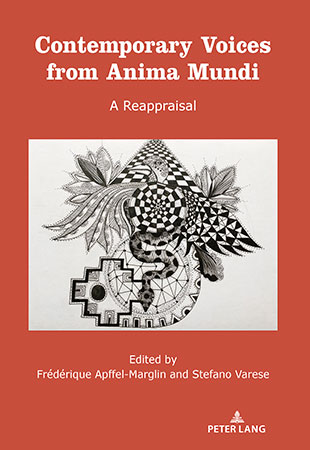News
Contemporary Voices from Anima Mundi: A Reappraisal

The new book by Frédérique Apffel-Marglin and Stefano Varese, entitled "Contemporary Voices from Anima Mundi: A Reappraisal" containing an article by Dr. Jacques Mabit based on his reflections on Amazon shamanism and Jungian archetypes has just been published.
This book is a reconsideration of spirituality as a lived experience in the lives of the contributors. The authors speak both as well-informed scholars and as individuals who experienced the lived spirituality they give voice to. The authors do not place themselves above and outside of what they are writing about but within that world. They speak of living psychospiritual traditions of healing both the self and the world; of traditions that have not disembedded the self from the wider world. Those traditions are from indigenous North and South America (5 essays), a Buddhist/ Shakta from Bengal, an Indo-Persian Islamic psychoanalyst, a mystical Jewish feminist rabbi, and a historical essay about the extermination of the Renaissance worldview of Anima Mundi.
Jacques Mabit’s contribution
Jacques Mabit gave his contribution to the book by writing the article “The Sorcerer, the Madman and Grace: Are Archetypes Desacralized Spirits? Thoughts on Shamanism in the Amazon”. Below an excerpt.
Peruvian Amazonian shamanism offers those who participate in it the opportunity to experience successive « little deaths » with the aim to tame the “great Death”. These dives in the “other world” for the indigenous people rest on two salvific anchors which are the permanent return to the body as well as the references to their sacred worldview. Western post-modern de-sacralized society lacking both of these makes the initiatory adventure doubly dangerous. The realities of the other-world for indigenous peoples are real and objective, living and functional. In this chapter we show that even C.G. Jung who more than anyone else came close to these dimensions through a process of individuation, at the end remained on the western side by reducing those to a subjective principle, individual or collective. The spirits of the indigenous’ other-world have become archetypes, psychic principles, neutral energies, secularized forces, and thus stripped of their “substance being”.
More information: Contemporary Voices from Anima Mundi: A Reappraisal